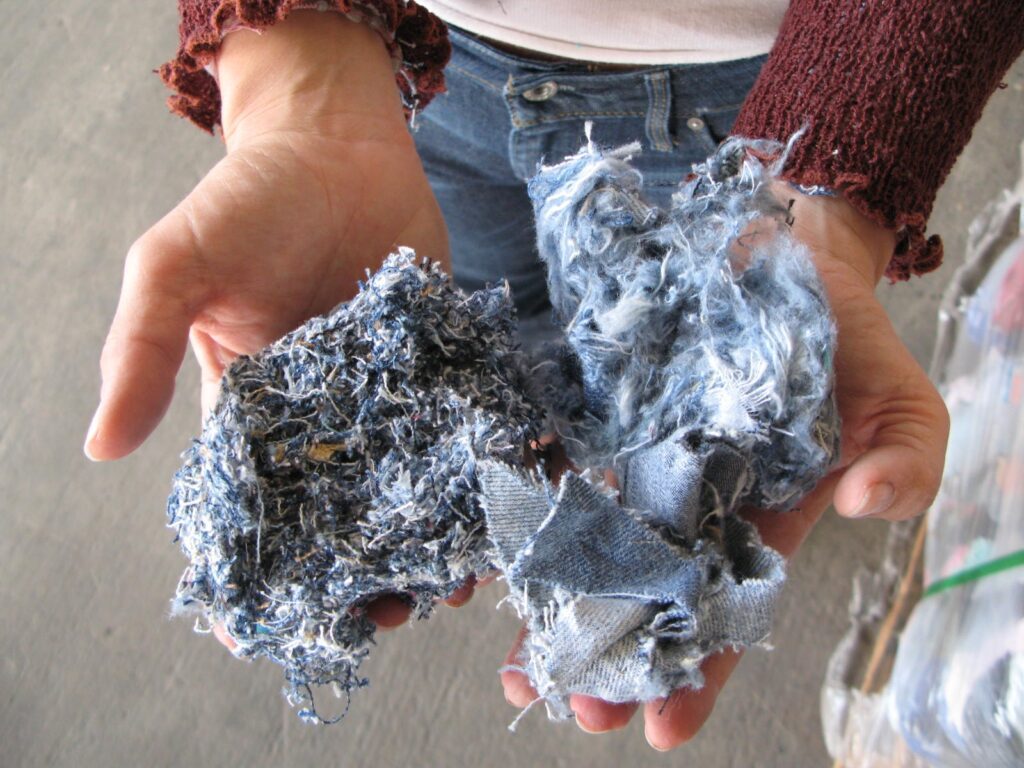Solution Spotlight: Crystal International Steps Up Circularity with Second Life Denim Collection


(THIS ARTICLE WAS WRITTEN BY CRYSTAL INTERNATIONAL – ONE OF THE SOLUTION PROVIDERS FEATURED IN GLOBAL FASHION AGENDA’S INNOVATION FORUM)
Crystal International Group Limited (“Crystal International”) takes circularity to a new height by launching eco denim collection – Second Life, online. The collection adopts recycled denim fabrics and sustainable materials to minimise wastage and keep materials in use, achieving a circular denim business model.
The eco denim factory in China initiated the new concept – Second Life, in 2020 and worked towards infusing pre-consumer cut waste and sorted scraps with a new life. By reducing the use of new materials, Crystal Denim can reduce water and energy consumption from growing new cotton, which accounts for around 70% of water consumption and 10% of carbon emission throughout the product life cycle of denim jeans. By collaborating with the partnering mills, Crystal Denim has successfully developed ten denim fabrics for men and women collections. Compared with the traditional recycled denim fabrics, the fabrics of the Second Life collection can provide greater depth of colour shade and stronger intensity of weft yarn while maintaining the durability. The variety of colour does not necessarily have to be sacrificed when using recycled materials. The ten fabrics are also different in recycled content, elasticity, and stretchability. With more choices of colour shade and different washing effects, the fabrics can create both dark and light colours, thus offering more styles and widening the product range. The collection goes for a vintage look to embrace denim authenticity. All fabrics are launched with a physical and digital format, and benefit from product development including 3D virtual sampling.
Crystal Denim is committed to producing cleaner jeans. The collection utilises recycled cotton which is dyed with liquid indigo for further water and chemical reduction. Some key wastewater parameters such as chemical oxygen demand (COD) and total suspended solids can be reduced over 60%. Recycled denim fabrics can mitigate the environmental footprint of virgin denim fabrics production, particularly water consumption. Eco washing methods are adopted in the finishing approaches without manual labour work. The whole collection of closed loop denim made by recycled fabrics are certified with Recycled Claim Standard (RCS), as well as with sustainable materials including Lycra T400 fibre with EcoMade technology and REPREVE recycled polyester. With the chain of custody standards, certified materials are traceable along the supply chain. Upon scanning the QR code on the product, a customer can access to the video about this collection and manufacturing information, including fabric information, Environmental Impact Measurement score, sample room and washing information, and certificate logo.
“The collection goes beyond “Second Life” and extends the circularity to even “Third Life” by further regenerating the wastage from the circular fabrics to other denim items. The cut waste from Second Life denim is gathered and upcycled as the new kimono jackets, patches, and accessories to work towards zero wastage”, said Mr Miles Lam, Assistant General Manager of Product Development of Crystal Denim.
Crystal International considers sustainability in a holistic way, from sustainable design to sustainable manufacturing using recycled materials from industrial wastage and eco washing methods. The company will continue to further the utmost effort in accelerating circularity to turn the waste back into the loop in the denim industry.